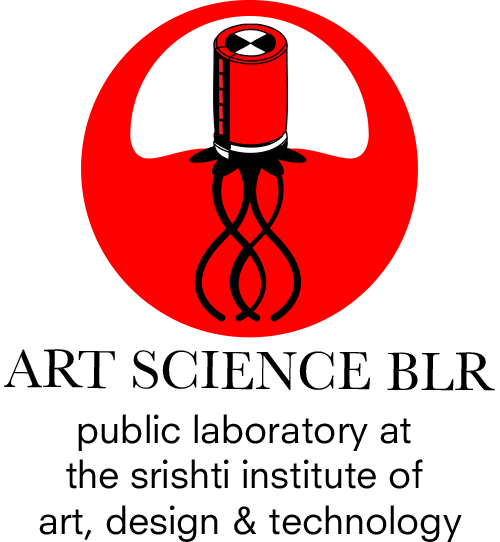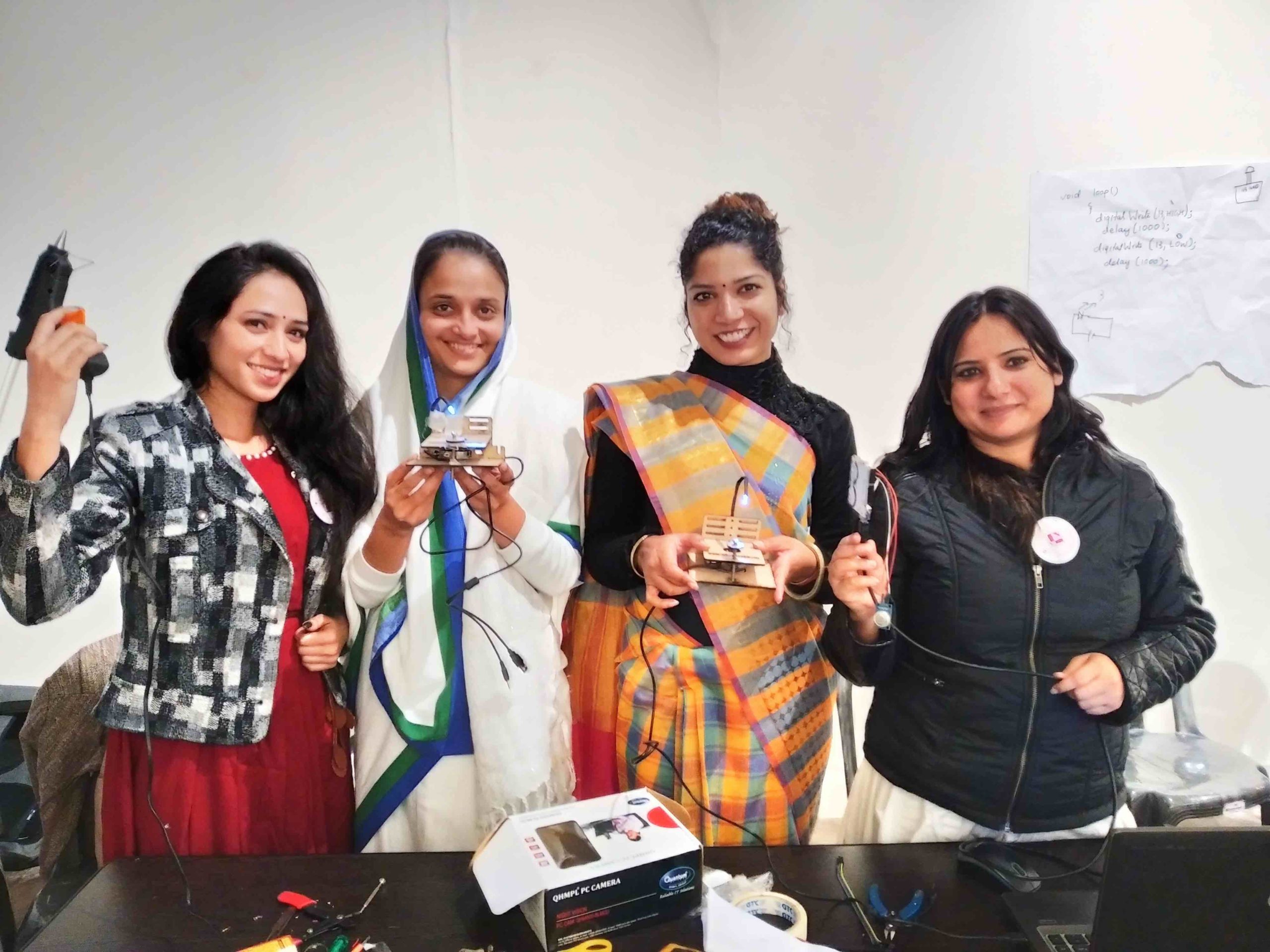
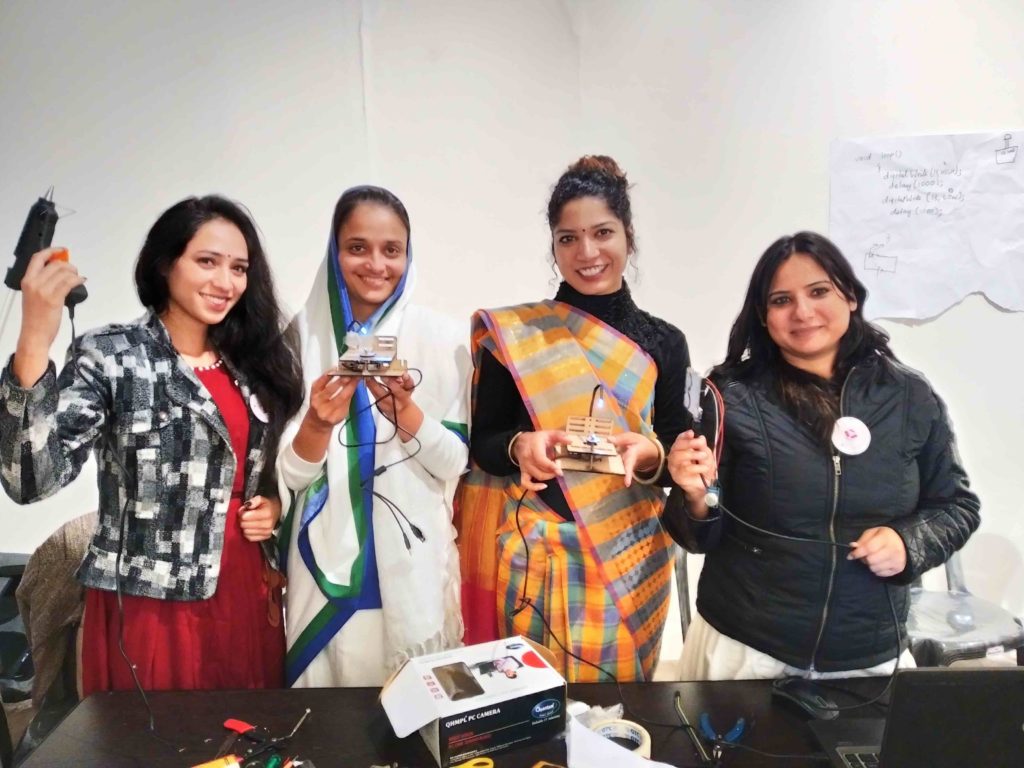
Art Education summit
In the last week of December, we were facilitators at a three day workshop at the Arts Education Summit organised by Art1st at the Indira Gandhi National Centre for the Arts in New Delhi. Delhi in December is cold and foggy but it was surprisingly not that polluted. The air was fairly breathable, so we left our gas masks back at the hotel.
This was also a season of protests. The anti-CAA protests were just beginning. At some point during the workshop, we lost our internet connection. Yes, all access to the interweb was lost. Thanks Government of India.
There were other minor tense moments but everything turned out okay.
Besides our workshops at the summit, there were a range of workshops – from zines to virtual reality in education. The summit also was host to a number of seminars on education and the arts.
ArtScienceBLR alumni, Avni Sethi ’09, was a speaker at one of the sessions on museums in education. Avni was an important contributor in the first year of ArtScienceBLR in 2009. She now co-ordinates the museum of conflict in Gujarat. Unfortunately, we missed her talk.
THREE DAY WORKSHOP
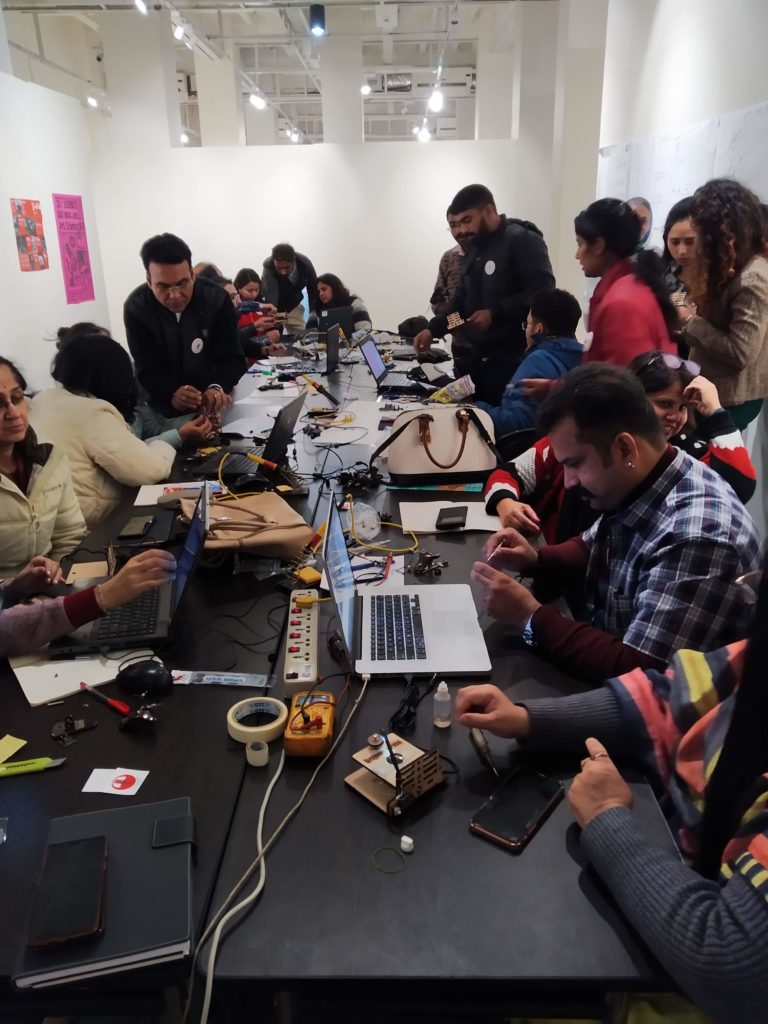
We did not know what to except from participants of these workshops. We knew that they would be CBSE teachers. If the teachers were anything like the one’s that taught me then I wouldn’t want anything to do with them.
Teachers menacingly loom over memories of our collective childhood as wretched kill joys – out to suck all fun out of living and learning.
Was it going to be the same or was it going to be different?
The workshop in Delhi was a hands on workshop. A majority of ArtScienceBLR’s workshops are concerned with some aspect of working with one’s hands. This philosophy behind this is covered elsewhere in extensive detail but a gist of it is this—— working with your hands is a form of thinking. Shaping things with your hands is not just intellectual engagement but is also a battle with the limits of your body and the material limits of objects. The phenemologists, in particular, Merlue-Ponty discuss the relationship between the body and perception. The book, phenemology of perception would be a good place to start.
All of this is great but it also meant that we had to pack electronics and tools for the 3 day workshop with approximately 100+ participants. This is fun but slightly stressful.
Lab Building
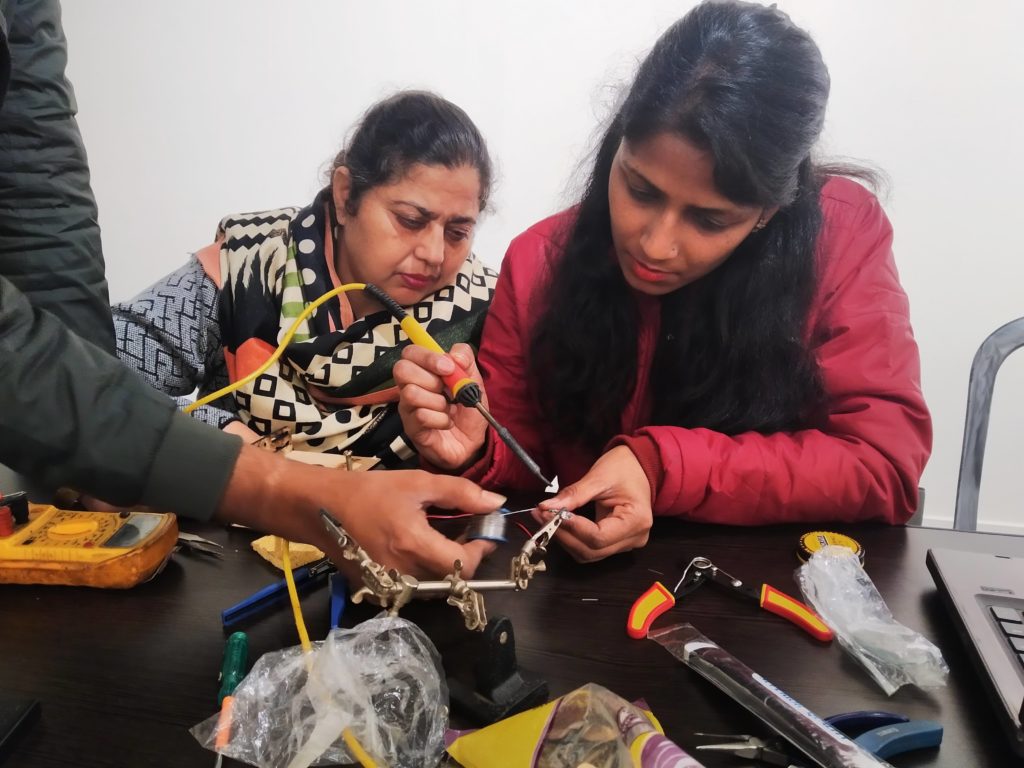
Our workshop was called Build your own laboratory. We’ve facilitated similar workshops before – For example, for Dr. G.N at the CUBE laboratory Homi Bhabha Centre for Science Education in Mumbai.These are themes that we have grappled with and developed over years in discussions with members of hackteria and others.
The question- What is a laboratory? also concerns our own practice. ArtScienceBLR claims to be a public laboratory. There has been a profusion of laboratories lately in the art and design world. Everyone and their uncle has a laboratory. The designer, Jackson Poretta once told me an amusing story about meeting a mafia don who claimed to have a ‘real-estate laboratory’.
The laboratory building workshop, therefore, is a collective exploration of the concept of a laboratory.
We start by thinking about the etymology of the word laboratory – Is it then a place for labor? Labor of all kinds – not just scientific or intellectual. Maybe even artistic, intangible and deeply personal. We therefore, begin the workshop by gathering tools for labor.
In this case, these tools are those that enable basic exploration of our environments —an activity that is sometimes broadly classified as science and sometimes as art.
Day 01: Build your own Microscope
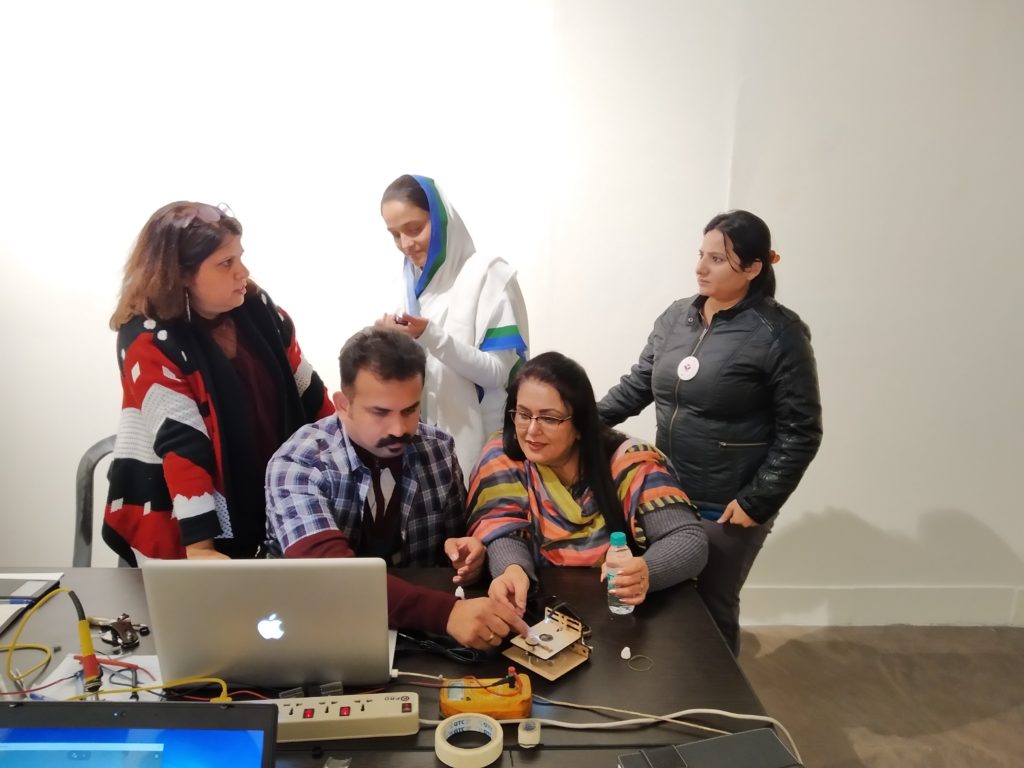
The first day, our workshop began with the Do it Yourself microscope. This is a workshop that I’ve done for over 10 years now as a part of Hackteria.org workshops along with Marc Dussieller. Building a microscope is essentially the “hello-world” of lab building and Do-it-Yourself biology.Its easy, draws on a large part of your mental resources and ingenuity.
All though, we’ve simplified the process of building a microscope by giving out kits—It still needs the participant to encounter their own hands.
We had made about 30 Hackteria-Microscope stages with our brand new LASER CUTTER – It had taken us half a day to do this. Using the laser cutter at the lab is always fun.
When one starts a workshop – we know there would be a couple of people that fall behind for some reason or the other but everyone managed to finish. We split the participants into groups of 3 and the finished microscope was a predictable success. Everybody loves and needs a microscope.
Mrs Khanna, an art teacher from Jammu wanted one for her school biology lab. She couldn’t finish it the first day.She came back over 2 days and finished it – her perseverance was remarkable and inspiring
Once you’re done building a microscope, you have a tool that is not just useful and functional but also one that gives you a visceral experience. We’ve seen people stare at their microscopes for hours. The microscope and the process of building it is the fundamental basis of starting to think about other tools and processes that you would like to incorporate in your own laboratory.
Day 02 and Day 03: Build your own pollution sensor
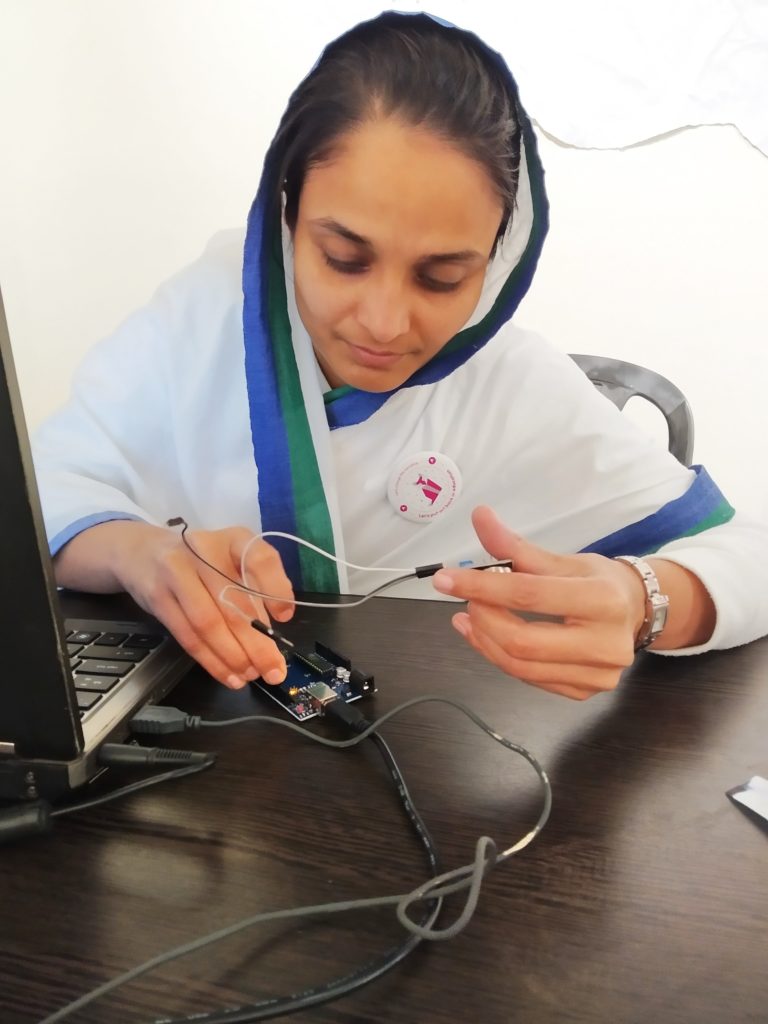
We started the second day of the workshop by building an air pollution sensor. Constructing a pollution sensor is an interesting exercise. For us, as facilitators, on a deeper level, it means thinking about community engagement and work. Talking about pollution in Delhi is relevant.
From a technical and craft perspective, building a pollution sensor involves learning some basic programming and learning to wire a very basic circuit with a micro-controller. In this case, an Arduino.I was apprehensive about Art Teachers learning Arduino in a day.
We used a regular MQ-135 air quality sensor- A couple of the teachers also wired up an MQ-7 which is a carbon monoxide sensor. Finding a match box and a lighter to test the sensor was a big challenge. It seems no one in Delhi smokes. This could be a good thing(or maybe there’s no need to smoke in Delhi – walking around is enough)
ALL the teachers managed to wire the circuit and build a pollution sensor in one day. We managed to graph and plot the data coming through the sensors – At this point, the Science teachers seemed interested in the workshop and I caught a couple of them sneaking in to our table. Somehow, we had legitimized our existence. One gentleman- Mr. Ghosh, an art teacher from Delhi even bought his painting -which he wanted to turn into an interactive painting with the circuit. At the end of the day, we even managed to make a so called interactive piece of art -a social commentary on pollution(or something). Why not?
On the third day of the workshop, we continued to build pollution sensors but with a different group of participants.
In total, we had over 100 participants. They were teachers from Jammu, Chhattisgarh, Chandigarh, Mangalore, Gujrat and every other corner of India. From tiny schools in small towns to fancy international schools.
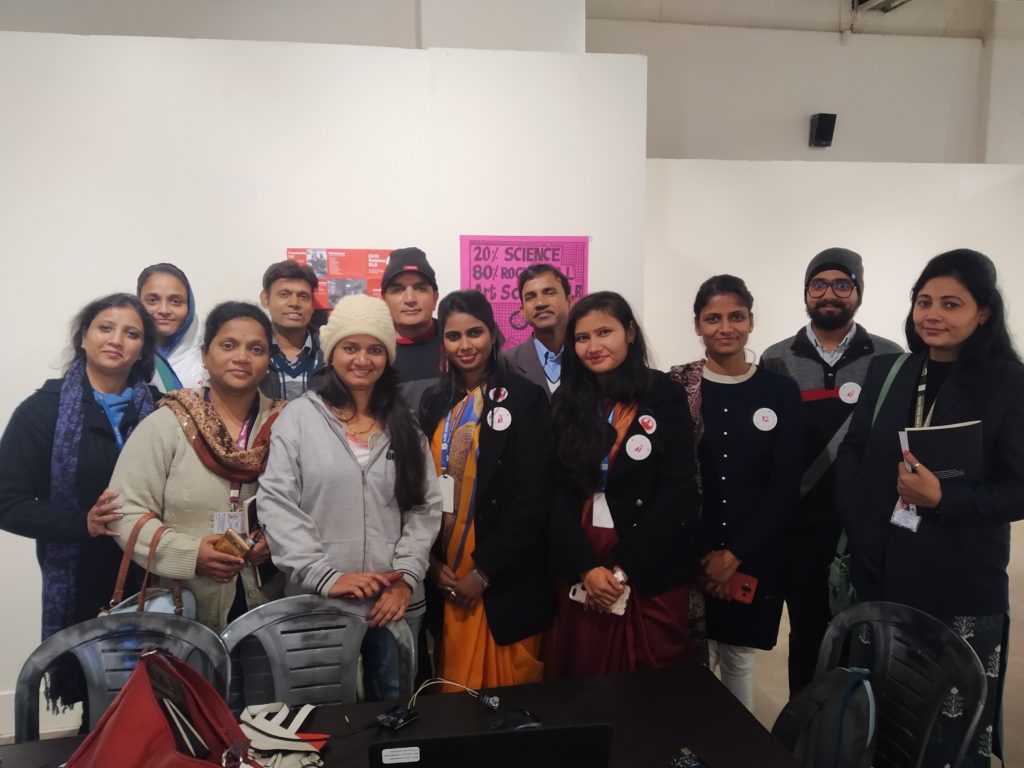
Long Term Engagment
The teachers were open to learning, supremely driven and their enthusiasm extremely inspiring. Most of the participating teachers taught art and craft. We had a smattering of science (physics, chemistry) teachers as well.
It would be great if Art1st had some means for the participants to keep in touch through a mailing list or some other means.
Long term sustained engagement with the participants would be a way in which we could check if these intense short-term pedagogical interventions succeed.
Thanks to Nataraj, Ritu Khoda, Meena Vari, Likla, Priyam and Wynona from ART1st.Also thanks to C.B.S.E
If you participated in the workshop or if you have any comments- leave it in the comments section below.
Some Links and Resources
Merlue Ponty – French Philosopher talks about the body and perception – For those that would like a deeper engagement with philosophies and pedagogies.
Hackteria.org – Web resource for D.I.Y biology, biotechnology and other things- Started by Yashas Shetty and Marc Dussieller.
Art1st – Organisation in Mumbai, India that organised this summit and also publishes books about art and other resources.
